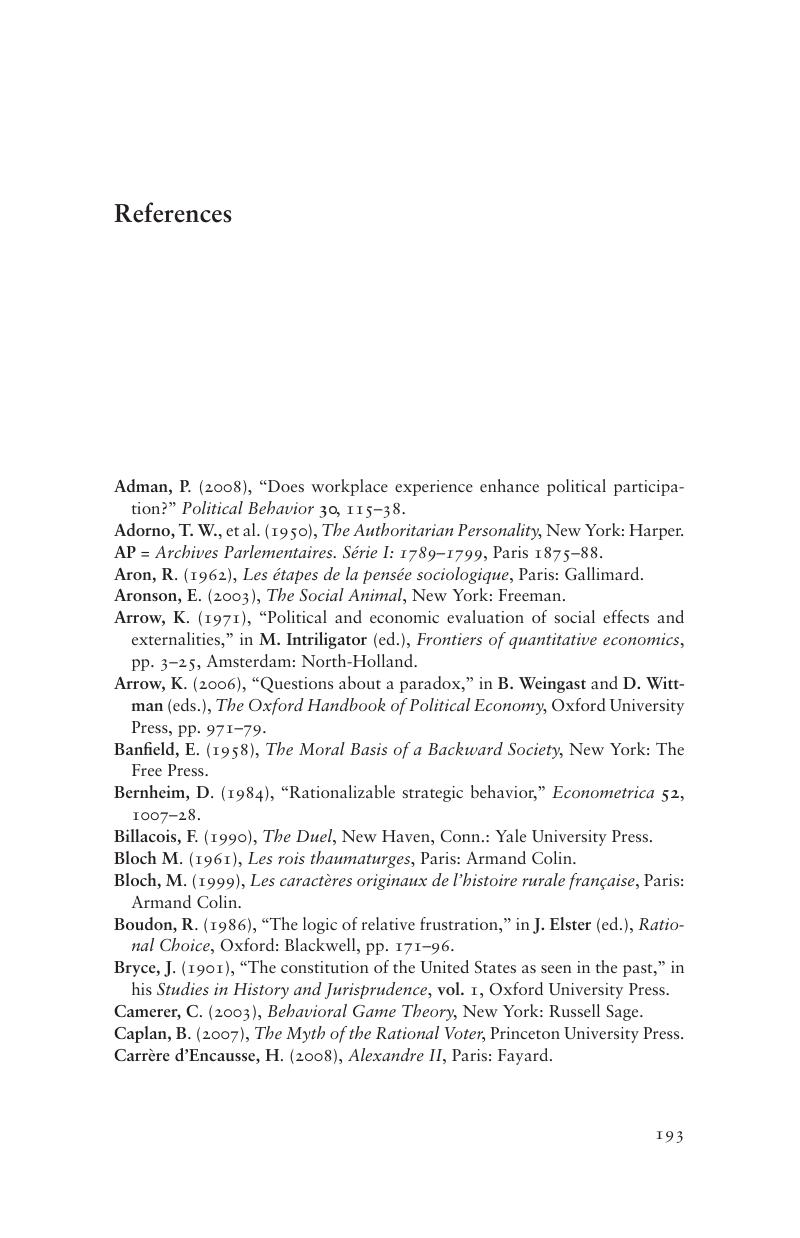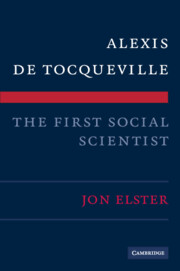Book contents
- Frontmatter
- Contents
- Preface
- A Note on the Texts
- Introduction
- 1 Preference Formation
- 2 Belief Formation
- 3 Self-Interest and Individualism
- 4 Passions
- 5 Desires, Opportunities, Capacities
- 6 Patterns of Social Causality
- 7 Equality and Mobility
- 8 Democratic Government
- 9 Revolution
- Conclusion
- References
- Index
- References
References
Published online by Cambridge University Press: 05 June 2012
- Frontmatter
- Contents
- Preface
- A Note on the Texts
- Introduction
- 1 Preference Formation
- 2 Belief Formation
- 3 Self-Interest and Individualism
- 4 Passions
- 5 Desires, Opportunities, Capacities
- 6 Patterns of Social Causality
- 7 Equality and Mobility
- 8 Democratic Government
- 9 Revolution
- Conclusion
- References
- Index
- References
Summary

- Type
- Chapter
- Information
- Alexis de Tocqueville, the First Social Scientist , pp. 193 - 198Publisher: Cambridge University PressPrint publication year: 2009



